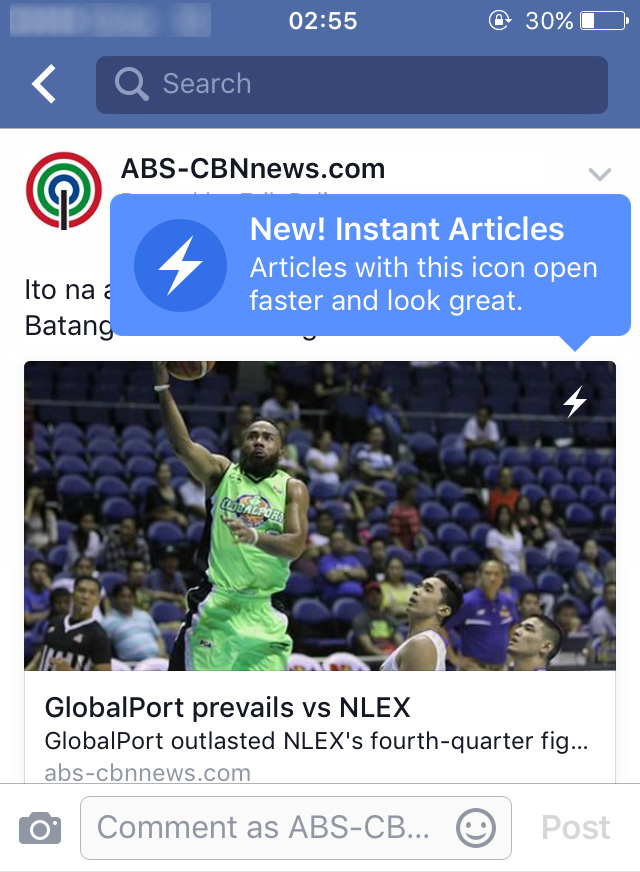 When IA opens up to all in April, publishers will have to make some hard choices; at best it’s a calculated risk.
When IA opens up to all in April, publishers will have to make some hard choices; at best it’s a calculated risk.
“They’re better for readers on mobile devices.”
That, in a nutshell, is Facebook’s primary reason why publishers should be clamoring to get on board its Instant Articles platform, writes Jonathan Bailey, editor and publisher of Plagiarism Today, in Talking New Media. At the upcoming F8 developer conference in April, he notes, the company will formally announce that the platform is open to all, not just the select group of publishers allowed to use it now.
“Instant Articles also include a series of features not easily available elsewhere including images that can be panned by tilting a phone, interactive maps and more,” Bailey continues. “Facebook also says that publishers will be able to have control over their content including customizing to fit their look, selling ads and adding any analytics tools that you wish.” It’s also entirely possible that Facebook will give preference in its algorithms to IA-hosted content, giving in-app publishers a critical edge in viewership.
Better reader experience; better exposure; plus ad revenue? Sounds great, but let’s not pretend that Facebook is doing this to make publishers happy. “Facebook itself gets a great deal of benefit from Instant Articles and some of that benefit could come at the expense of webmasters,” Bailey cautions.
“The biggest advantage for Facebook out of Instant Articles is that users will not leave the site (or rather, the mobile app) in order to read the publisher’s content,” he explains. “Since the content is now hosted on Facebook’s servers, Facebook can better track users and they have more control over the content. That lack of control does mean a loss of publishers.”
Another likely result is rampant copyright infringement, as Baily explains by referencing what happened when Facebook’s video policy encouraged massive piracy. There is no clear indication as to how the platform will prevent a similar “freebooting” free-for-all with written content, similar to what happened to YouTube videos posted on Facebook’s platform. This is poised to happen whether a publisher is on IA or not; it’s irrelevant.
Bailey explains that publishers will have to ask themselves whether the decrease in traffic to their own sites is worth the payoff. So far, publishers are reporting underwhelming results from Apple’s news publisher platform and results are mixed for IA users. (He provides some interesting stats in his piece that show inconsistent use among big name media brands, saying “[while] most publishers seem to still be using them, their inconsistent usage is hardly a ringing endorsement.”
That, plus the control that IA users will be required to relinquish, makes the situation akin to owning versus renting your home, Bailey notes. He plans to try the system with his own content, although warns readers not to take that either endorsement or recommendation, saying “it will be a chance for me to gather data and better understand the impact it has.”
“To that end, I just encourage creators to carefully weigh the potential benefits and drawbacks to see if Facebook Instant Articles is right for you. If you’re highly dependent on ad revenue or strongly desire total control over your content, I, personally, would wait. If you’re already sharing your content freely, there probably isn’t much harm in giving it a try,” Bailey concludes.
Many media brands are balking at the idea, not willing to give up control of their content in order to amass eyeballs. But that leaves them wondering how they continue to thrive in a landscape where FB creates a walled garden and they are left outside.
